Shaver Task Light by Vladimir Rachev
If Vladimir Rachev’s bold assertion that his new Shaver Task Light intends to pay homage “to qualities other than aesthetics and function” has you a bit perplexed, formulating, perhaps, in your budding incredulity the infinitely reasonable conjecture, “what else is there?”, you’d do well to educate yourself a bit about Mr. Rachev. Or at the least consult his website, whose homepage image of a pair of quasi-children/aliens/ghosts/Pillsbury Doughboys lamenting the breakage of a crudely fashioned tree swing evokes the dark whimsy of Tim Burton and the pathos of Edvard Munch.
Shaver. Designed by Vladimir Rachev.
If the imagery doesn’t clue you in to Rachev’s aesthetic, the designs certainly will. Lauded products include “Frozen,” a pair of exquisitely crafted pencils encased in crystal; “Phone,” a phone-iron hybrid that plays with the intersection of the habitual and the repellent; and “Stackable Drowning City,” a miniaturized reproduction of a cityscape made of Arpro Epp (engineered expanded polypropylene foam) that’s a humorous comment on our (in)abilities to address climate change. While this roster suggests that Rachev is somewhat of a showman—with a philosophical bias very much attuned to the humorous reconfigurations/hybridizations of an artist like Marcel Duchamp—pieces like Rocking Chair and Perch reveal the pragmatist within the aesthete, though the furnishings are still highly invested in Rachev’s sense of the absurd.
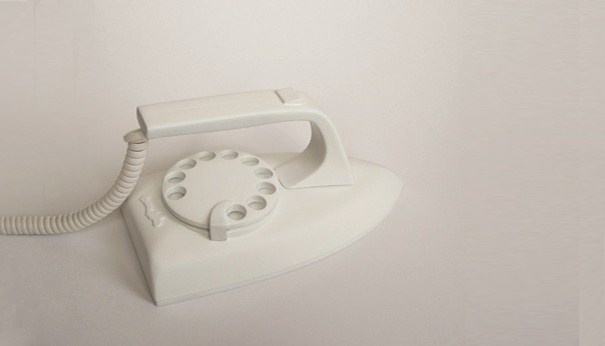
Phone. Designed by Vladimir Rachev.
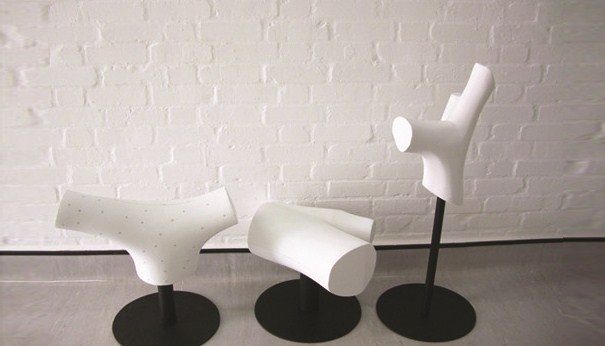
Perch Stools. Designed by Vladimir Rachev
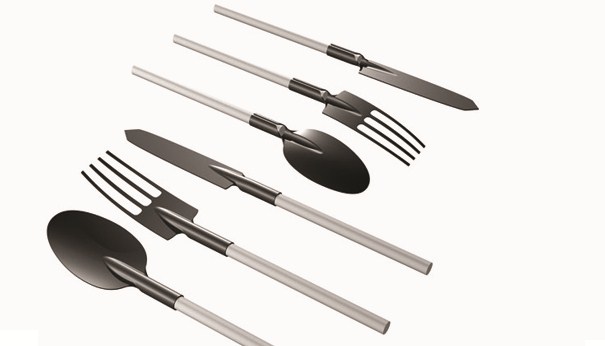
Soil. Designed by Vladimir Rachev.
With Shaver, constructed of “spray painted bits of an old Anglepoise Lamp,” he’s entirely eschewed functionality for form: “I wanted to describe and extol the qualities of the mechanism, with the integration of an object that requires those exact qualities.” Thus the “flexibility, smoothness of gesture, and ease of movement” of the classic Anglepoise meet their counterpoint in the appended electric shaver attached to the piece’s business end. Now before you go bemusedly scratching your head (or probing your whiskers to see if you’re in need of a shave) consider the intersection of art and design. For that is clearly the terrain Rachev travels with Shaver. His purposeful blunting of the very idea of functionality intends a kind of genial provocation, both thwarting our desire for design to “do” something and making us ponder the possibilities (much like the work of Duchamp) of reclaimed/re-invented purpose as art.
Look for Shaver and other work by Rachev at Tent London, September 24-27.
Via Designboom
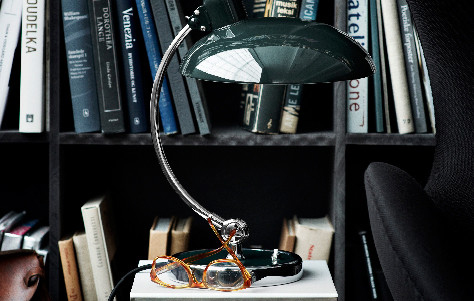
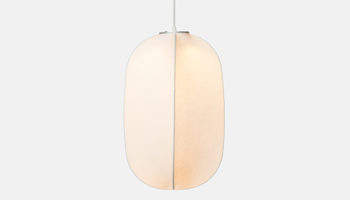
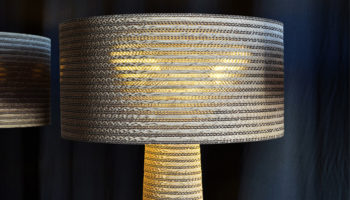
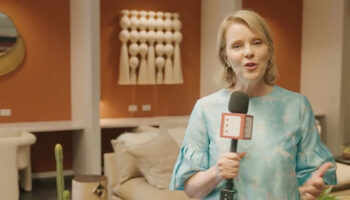
Leave a Reply